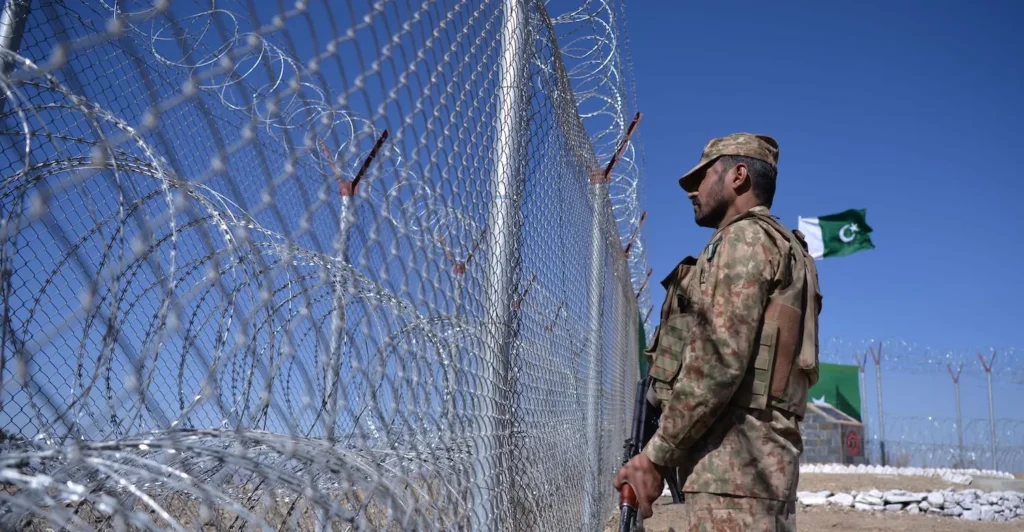The Istanbul talks between Pakistan and Afghanistan concluded on October 30, 2025, with both nations agreeing to extend their ceasefire and establish joint monitoring mechanisms. However, the prospects after the Istanbul talks remain deeply uncertain as fundamental challenges persist between the neighbors. The principal-level meeting scheduled for November 6, 2025, will determine whether this diplomatic breakthrough translates into lasting regional peace or merely delays inevitable renewed conflict.
Pakistan and Afghanistan reached their ceasefire agreement through two intense rounds of negotiations mediated by Turkey and Qatar. The prospects after the Istanbul talks depend primarily on implementing the joint monitoring and verification mechanism with enforcement provisions that both parties committed to establishing. Yet, diplomatic observers caution that the prospects following the Istanbul talks require a genuine commitment from both governments, rather than merely symbolic gestures that have characterized previous agreements.
The immediate sustainability challenge centers on Pakistan’s demand for concrete action against Tehrik-e-Taliban Pakistan (TTP) militants operating from Afghan territory. The Islamic Emirate of Afghanistan refuses to designate the TTP as terrorists or acknowledge that they pose direct threats to Pakistan’s security. This fundamental disagreement nearly derailed negotiations entirely, with Pakistan declaring the talks had failed before Turkish and Qatari mediators intervened. Such deep mistrust shapes the probability that prospects after the Istanbul talks can materialize into lasting peace rather than temporary truces.
Future Prospects After Istanbul Talks: Breaking the Trust Barrier
Economic consequences have intensified international and domestic pressure for sustained peace. Border closures have cost both nations approximately one million dollars daily in lost bilateral trade. Thousands of containers remain stranded at sealed crossings while traders on both sides face bankruptcy and economic devastation. The prospects after the Istanbul talks partly depend on reopening major border crossings, including Torkham and Chaman, yet Pakistan maintains security prerequisites that Afghanistan has shown reluctance to accept. This economic pain creates powerful incentives for peace while simultaneously generating widespread impatience with slow diplomatic progress.
Pakistan’s military establishment has consistently signaled that security concerns supersede economic interests. Defense officials indicate that border reopening must await concrete proof that Afghanistan is preventing TTP operations against Pakistani targets. This position creates a significant paradox: economic recovery depends on normal trade relations, yet Pakistan maintains security conditions that Afghanistan refuses to meet. Genuine resolution requires both governments demonstrating unprecedented political flexibility regarding their respective threat perceptions and security interests.
The November 6 principal-level meeting represents the decisive moment for determining prospects after the Istanbul talks. Defense Minister Khawaja Muhammad Asif of Pakistan and Defense Minister Mullah Muhammad Yaqoob of Afghanistan must finalize critical operational details of the monitoring mechanism. This high-level engagement suggests renewed seriousness, yet past agreements between these officials have repeatedly failed to produce lasting results. Pakistan consistently accuses Afghanistan of violating previous commitments, while Afghanistan claims Pakistan has never genuinely respected Afghan sovereignty and territorial integrity.
Regional powers significantly influence outcomes related to the prospects after the Istanbul talks. China’s strategic interest in regional stability through its Belt and Road Initiative provides external pressure encouraging peace. The trilateral China-Afghanistan-Pakistan dialogue emphasizes enhanced cooperation, though implementation has remained limited. Turkey and Qatar’s continued mediation suggests sustained external support for peace, yet outside pressure alone cannot substitute for genuine domestic political will from both governments themselves.
Conclusion
Prospects after the Istanbul talks ultimately depend on the strategic choices Pakistan and Afghanistan make in the coming weeks. While the agreement provides a framework for peace, frameworks require sustained political commitment to be implemented effectively. Both nations face a fundamental question: will they prioritize regional integration and mutual prosperity, or continue historical patterns of conflict and proxy warfare? The November 6 meeting will provide crucial answers about whether these nations genuinely seek lasting peace or merely tactical truces. Until then, uncertainty characterizes their bilateral relations as the international community watches this critical South Asian diplomatic process unfold with great interest.


